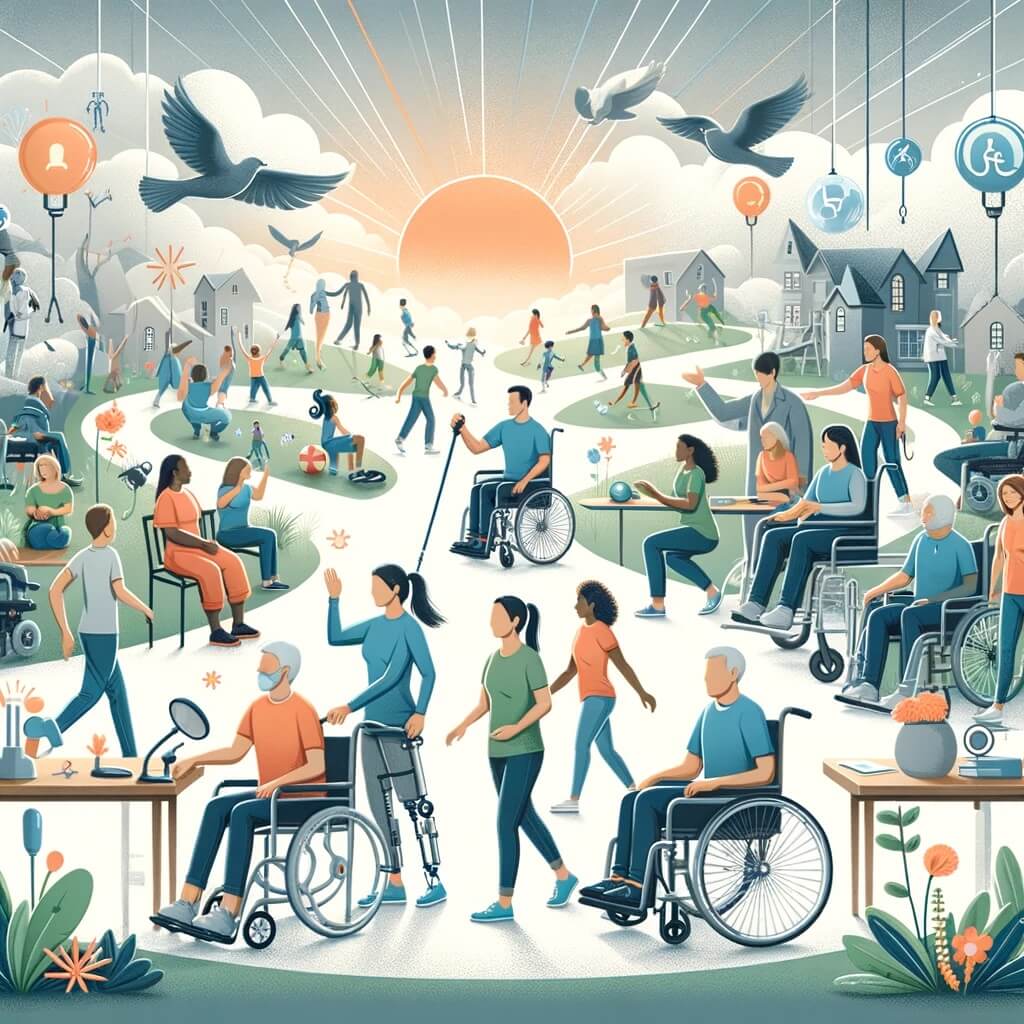
Adjusting to Disability: A Guide for the Newly Disabled
Welcome to this comprehensive guide designed for individuals who are navigating the challenges and changes brought about by a new disability. Our aim is to empower you with knowledge, resources, and strategies to make your transition into this new phase of life as smooth and manageable as possible. Whether you are newly disabled, a caregiver, or a healthcare professional, this guide seeks to provide you with in-depth, accurate, and valuable insights into adjusting to life with a disability, fostering independence, and enhancing well-being.
Understanding Disability: A Current Overview
Disabilities can arise from various conditions, including accidents, chronic illnesses, or genetic factors, affecting millions worldwide. As of the latest data, approximately 15% of the world's population experiences some form of disability, highlighting the significance of fostering an inclusive and supportive society.
Emotional and Mental Health Coping Strategies
Adjusting to a disability is not only a physical challenge but an emotional one as well. It's crucial to acknowledge and address the wide range of feelings you may encounter, from grief and anger to acceptance. Effective coping strategies include:
- Seeking Professional Support: Engaging with psychologists or counselors who specialize in disability can provide you with tailored strategies to manage your emotions.
- Peer Support Groups: Connecting with others who have gone through similar experiences can offer comfort, understanding, and valuable advice.
- Mindfulness and Meditation: These practices can help reduce stress and improve your emotional well-being.
Physical Rehabilitation and Adaptation
Physical rehabilitation plays a pivotal role in maximizing your independence and quality of life. This process involves:
- Assessment by Professionals: A team of healthcare providers, including physiotherapists and occupational therapists, will evaluate your needs.
- Customized Rehabilitation Plan: Based on your specific condition, a plan that may include exercises, therapy, and the use of adaptive tools will be developed.
- Ongoing Support and Adjustments: As you progress, your rehabilitation plan will be adjusted to suit your evolving needs.
Adaptive Tools and Technologies
Adaptive tools and technologies are designed to help individuals with disabilities perform tasks that might otherwise be challenging. These can range from simple devices, such as grabber tools and modified eating utensils, to advanced technologies like voice-activated home systems and customized mobility devices. Learning how to effectively use these tools can significantly enhance your ability to perform daily activities independently.
Building a Strong Support Network
A robust support network is essential for emotional and practical support. This network can include:
- Family and Friends: Open communication with your loved ones about your needs and how they can support you is crucial.
- Community Resources: Local disability organizations and online forums can provide information, resources, and connections.
- Healthcare Providers: Regular check-ins with your medical team can help monitor your progress and adjust treatments as necessary.
Knowing Your Rights and Benefits
Understanding your legal rights and the benefits available to you is crucial for protecting your interests and accessing necessary services. This includes:
- Disability Rights: Familiarize yourself with laws that protect individuals with disabilities from discrimination, such as the Americans with Disabilities Act (ADA) in the U.S.
- Disability Benefits: Government programs may offer financial assistance, healthcare, and other support services. Research and apply for the benefits you are eligible for.
Empowering Yourself and Others
Adjusting to life with a disability is a journey that involves learning, growth, and adaptation. By accessing the right resources, embracing supportive networks, and utilizing adaptive tools, you can navigate this transition more smoothly. Remember, your experience is unique, and embracing your journey with a positive and hopeful outlook can open new pathways to fulfilling and independent living.
Conclusion
Adjusting to a new disability is a profound life change that requires patience, resilience, and support. This guide aims to provide you with a starting point for understanding and navigating the complexities of living with a disability. By leveraging emotional coping strategies, physical rehabilitation techniques, adaptive tools, and support networks, you can work towards achieving a sense of normalcy and independence. Know your rights, access available benefits, and remember that you are not alone. Empowerment starts with information, and with the right resources and support, you can adjust to your new circumstances with confidence and hope.
Further Resources
For more detailed information and support, consider reaching out to local and national disability organizations, healthcare providers, and online communities dedicated to disability support and advocacy. These resources can provide personalized advice, assistance, and camaraderie as you navigate your journey.
Remember, adapting to a disability is a personal journey that unfolds differently for everyone. Stay informed, stay connected, and most importantly, stay hopeful.
Society



